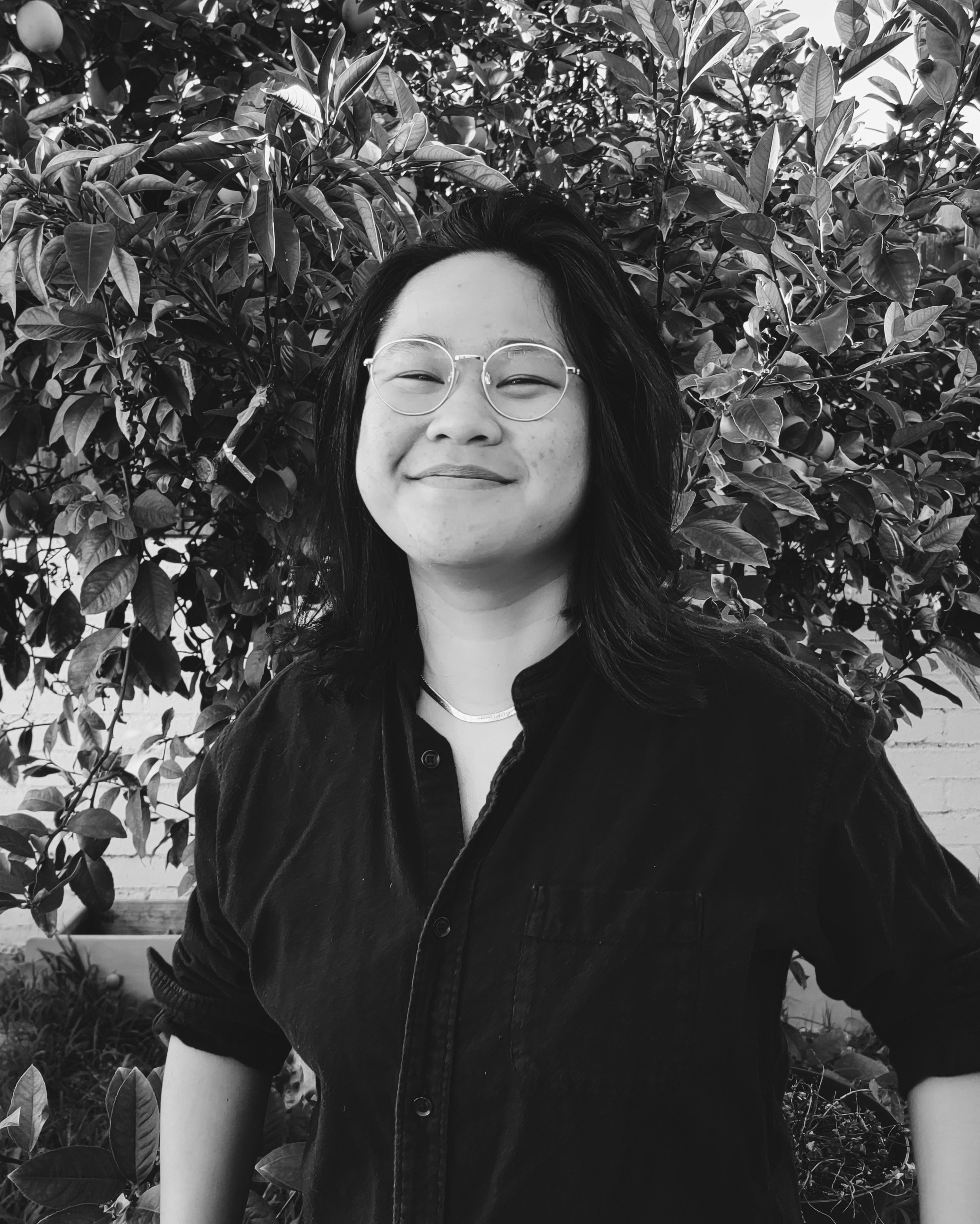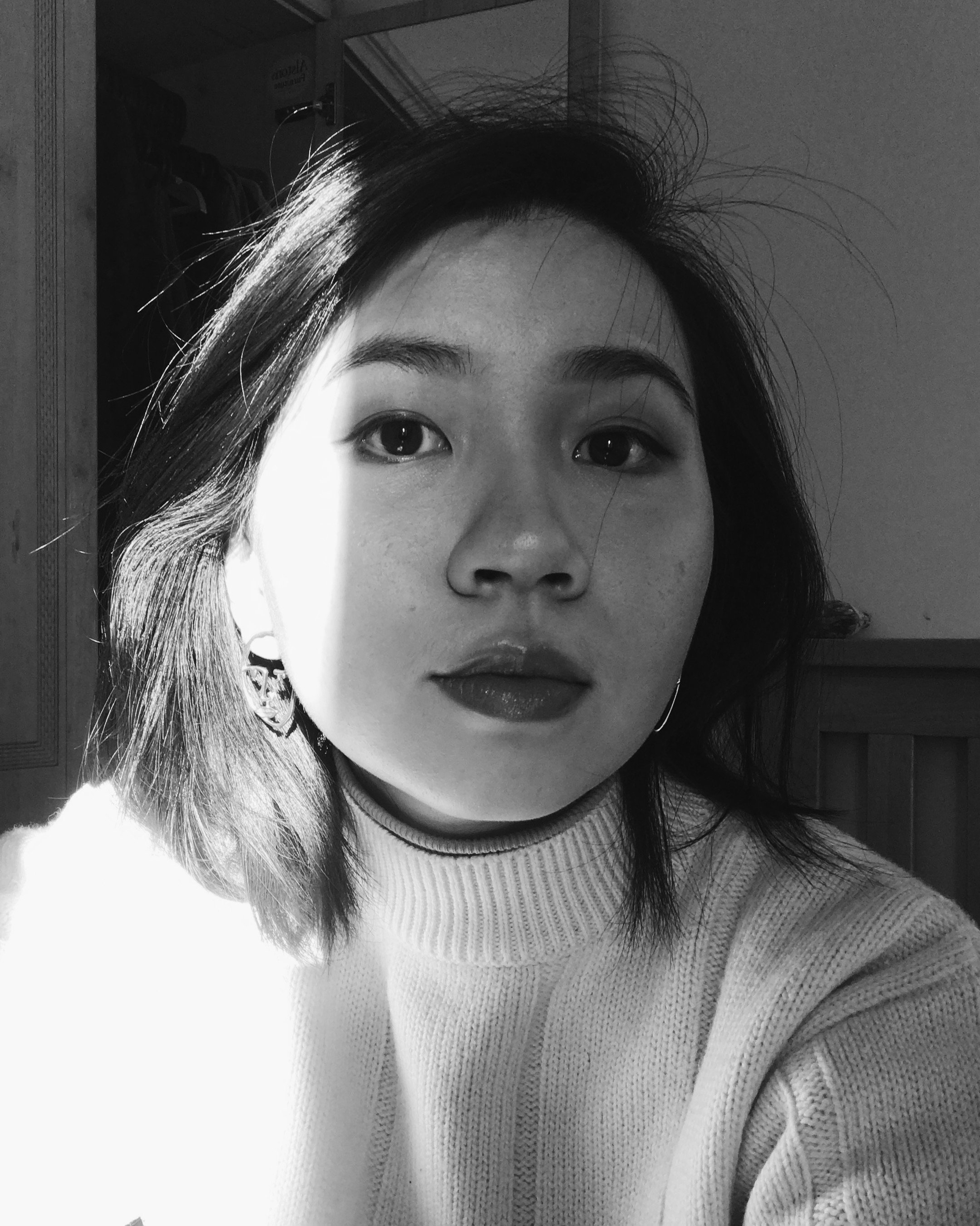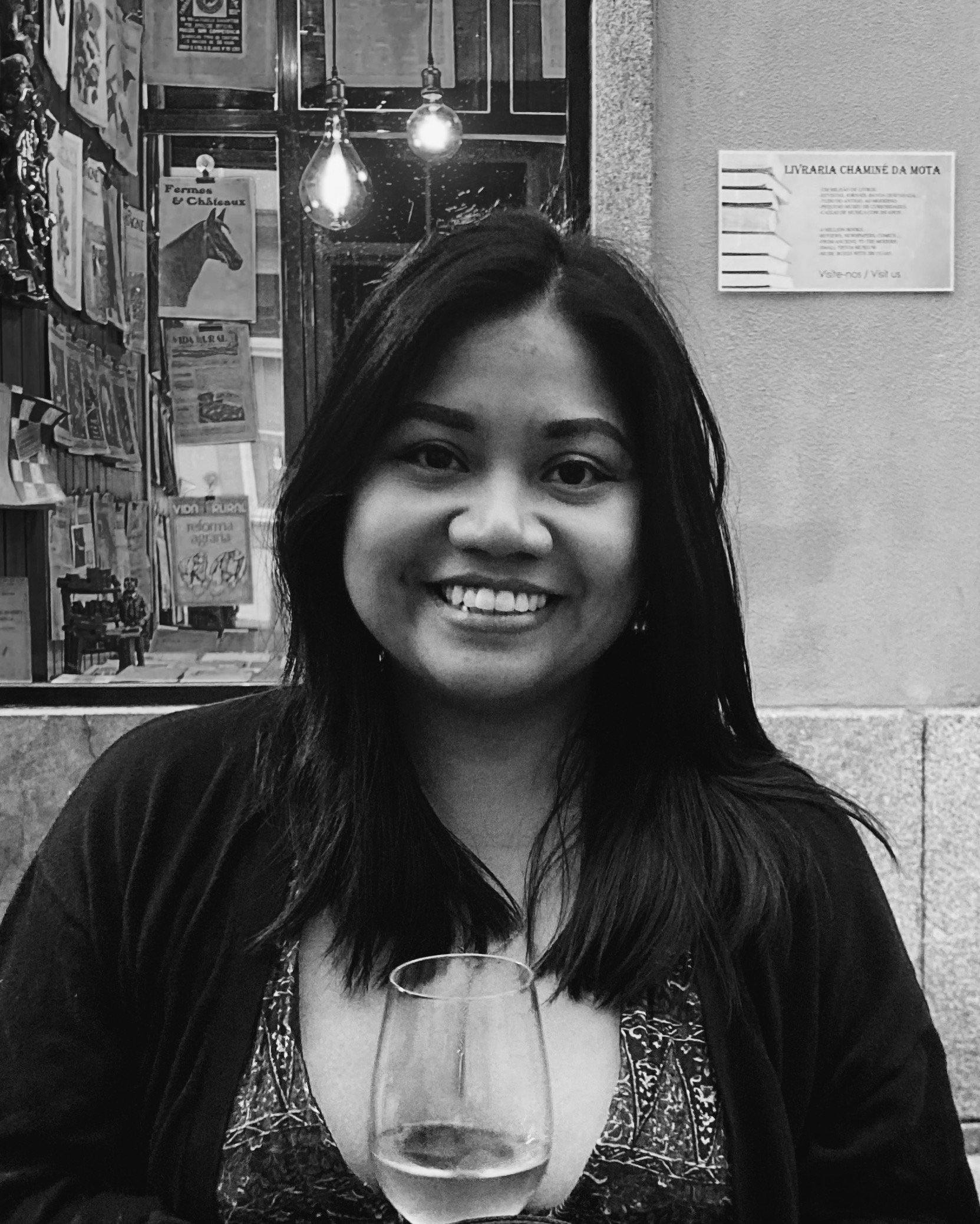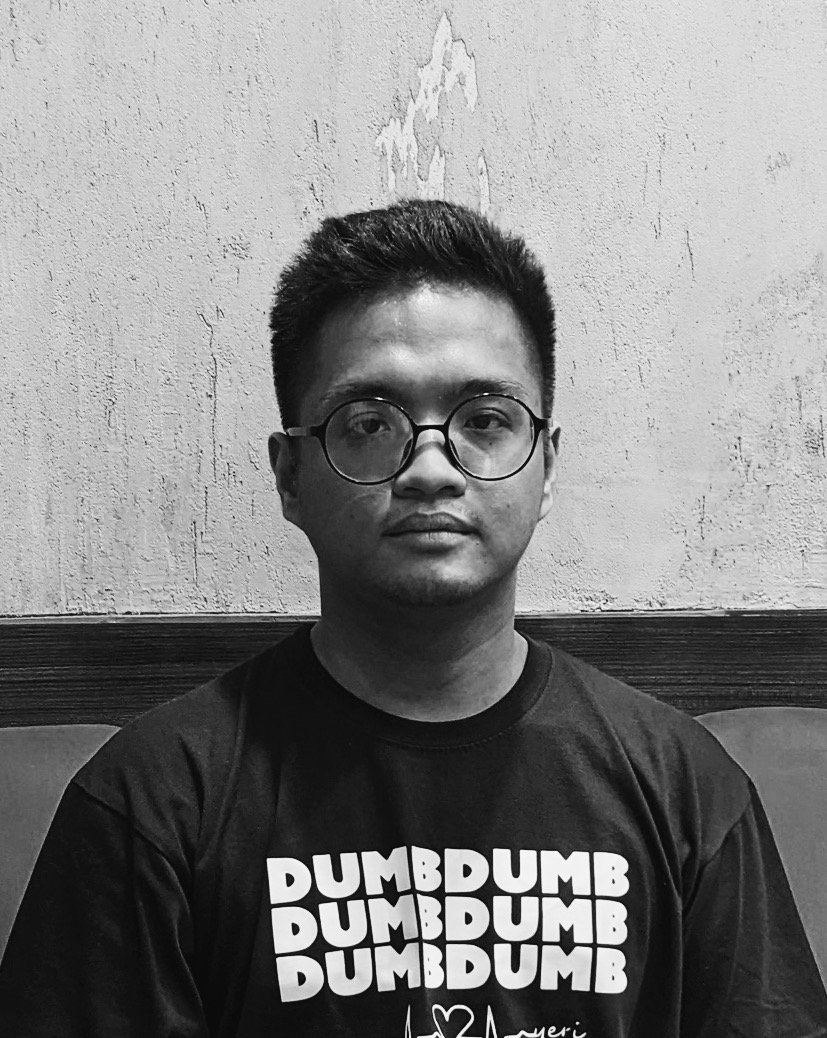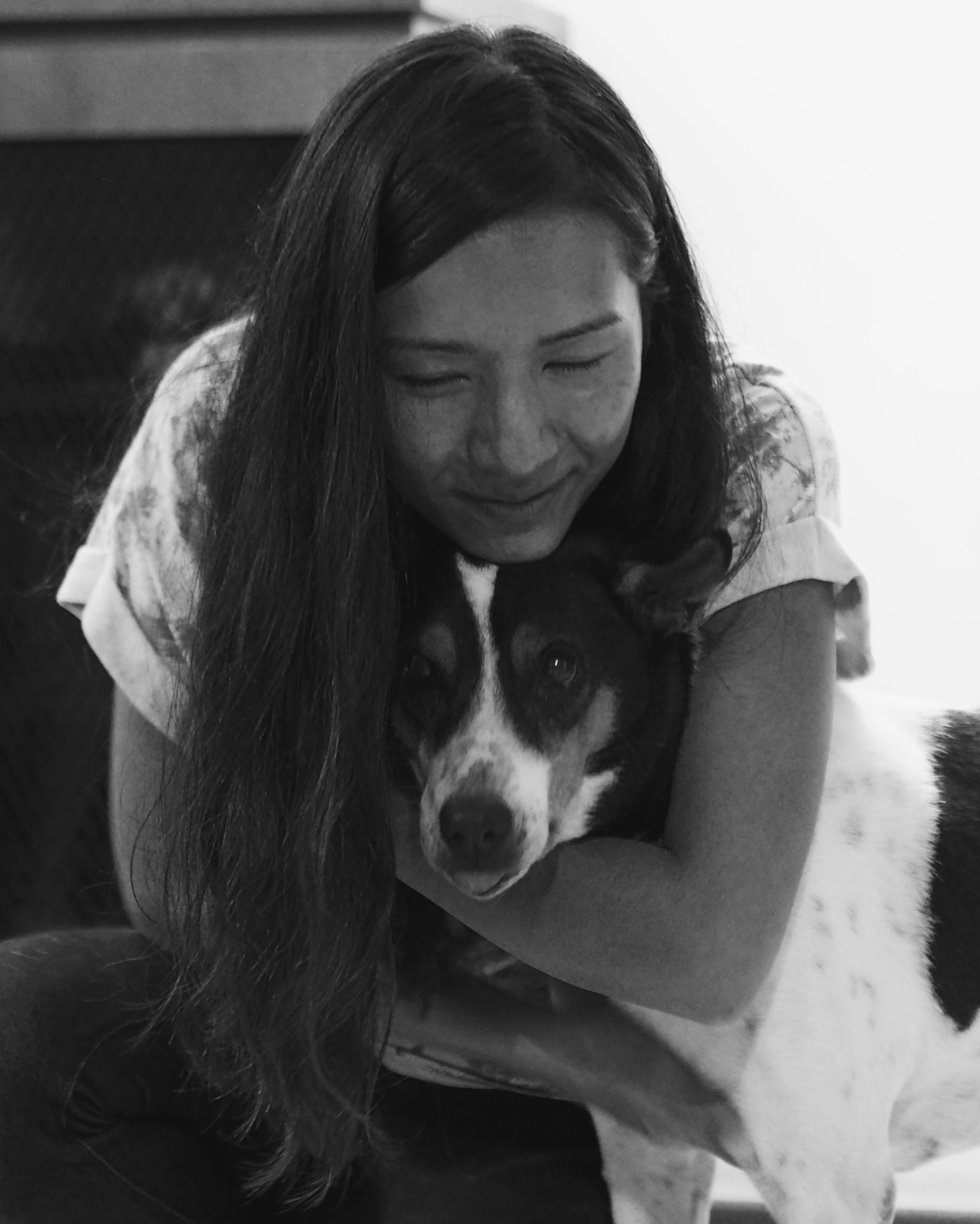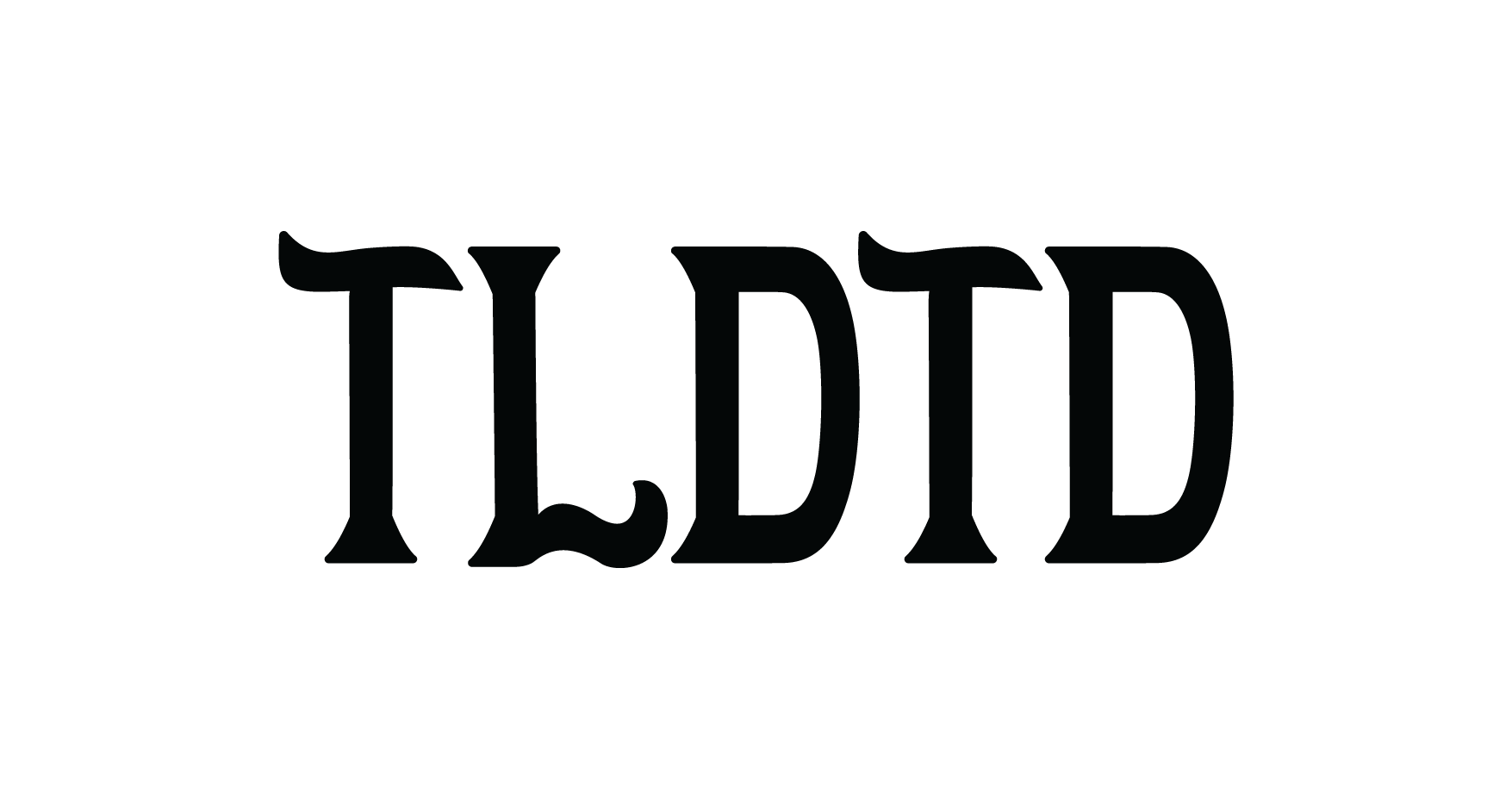The fourth edition of the Hawker Prize for Southeast Asian Poetry awarded a total of $2950 and two Honourable Mentions. For the first time ever, the cash prizes were also split evenly between the winning poets and their editors. The winning poems may all be read here.
To highlight their achievements and dedication to publishing quality poetry, Station Director and writer Daryl Qilin Yam interviewed Christine Imperial, Cara Ow and Yasmin Mariam Kloth alongside the editors of TLDTD and The Tiger Moth Review. A bonus interview with Alfonso Manalastas was also conducted.
TLDTD’s nomination of “sounds like/tunog” by Christine Imperial secured the poet First Place in the 2021 Hawker Prize. Their nomination of Miguel Barretto Garcia's "Confessions to Lourdes Libres Rosaroso also earned them an Honorable Mention.
Sing Lit Station's Daryl Qilin Yam chats with Christine and the TLDTD editors Nikay Paredes and Paolo Tiausas about their success, the music they’re listening to, and the impact of the recent presidential elections in the Phillippines.
DQY Congratulations, Nikay and Paolo! Can you share with us your thoughts on the two winning poems?
NP First of all, thank you so much for recognising Christine’s and Miguel’s work! When Paolo and I first learned about the contest results we were just stunned. To receive First Place and an Honourable Mention for two poems we published in our very first issue is reaffirming for us as the co-founding editors of TLDTD.
“sounds like/tunog” is complex in both form and subject matter. It’s a poem that plays with two languages, Tagalog and English, and is presented in a fragmented form that invites multiple readings. I also don’t want to keep it a secret that I’ve worked with Christine before. She was my student and thesis advisee close to a decade ago, so her receiving this honour feels extra special.
Miguel’s work, also a bilingual poem, immediately leapt out to me because of the title. Like many Bisayas from Cebu, I grew up listening to “doktora abogado Lourdes Libres Rosaroso” and her show Kini ang Akong Suliran (This is My Problem). This poem feels very nostalgic to me. It’s also so lovingly written.
PT Like Nikay, I want to first express my appreciation for the recognition of the two poems. I feel it’s kind of apt that two poems with very different styles and manners of execution were chosen. Both poems are fitting ambassadors for what we believe to be a very dynamic Philippine poetry scene — you have Christine’s unflinching ambition to rewrite sound and experience and story in an unorthodox two-part poem, and then you have Miguel’s buttery-smooth lyric which hits all the right emotional notes in a four-part exposition. They’re both very exciting work in their own unique ways, and I think that’s what we’re always looking for.
DQY That’s wonderful. Christine — one of our judges, Annaliza Bakri, said that your poem reminded her of N.H. Pritchard. What would you say are your prevailing influences, your sources of inspiration?
CI M Nourbese Philip, Theresa Hak Kyung Cha, and Layli Long Soldier are some of the writers who are really influential to my writing and were especially important in the writing of "sounds like/tunog". The works of these writers simultaneously contend with the tyranny and possibility of language. For these writers, poetry isn't just expression but it's also critique. I am also influenced by Filipino scholars such as Vincente L Rafael, whose book Motherless Tongues: The Insurgency of Language amid Wars of Translation, really sparked my interest in thinking about the ways in which Filipinos have been and continue to be dominated by English, while also finding ways to make it our own and subvert its power.
DQY Articulation struck me as a profound difficulty for both the persona and the characters caught within the bars of "sounds like/tunog". How has poetry facilitated this difficulty for you? Does it enable? Disable?
CI That’s a really good question. Difficulty of articulation is a great way to put what the poem contends with. Poetry enables difficulty by revealing the underlying histories and conflicts within language, and disables it by being a space wherein language and its conventions are defamiliarized. Form is crucial with this defamiliarization, since it forces out latent associations through constraint. With "sounds like/tunog" I wanted to inhabit the experience of both a language learner and a translator, and work through that tension.
DQY Why submit to TLDTD? How did you come to know about the journal?
CI I came to know about the journal through Nikay, who was my mentor in Ateneo where I got my BFA in Creative Writing. I knew that whether or not the poems I submitted would be accepted, they were in excellent hands. Aside from my personal connection to Nikay, I was excited by a journal dedicated to Filipino poets, not just in the Philippines, but around the world. There aren't a lot of literary avenues for poets writing in the Philippines and diasporic Filipino poets to be in conversation with each other.
DQY Nikay, Paolo – can you tell us about the origins of TLDTD?
PT The local Philippine poetry scene is home to many, many amazing poets, but to an alarmingly few publications. Opportunities to publish poetry in print are very limited, whether through commercial or academic publishers, journals, magazines, or other formats. Without access to these platforms, poets run into dead ends: you can write all you want, but how is it going to reach other people? It’s partly an issue of funding in a country that hasn’t been the most consistent in its support for arts and culture initiatives. Given that scarcity, one feasible option is to take things online and utilise the internet—as an equaliser—to help offset the costs of print.
However, even by the midpoint of the last decade (around 2015/2016, when the initial ideas for TLDTD began), we felt that this attempt to “take things online” wasn’t really taking shape. A few online journals appeared, but would unfortunately fizzle out after an issue or two. Some lasted longer (five or six issues), but would still cease their activities without warning. It wasn’t uncommon to see that website domains were suddenly expired, and that there were almost no traces of a journal left. Since most were passion projects by individuals with day jobs or small volunteer-driven collectives, it meant that these people also shouldered everything for operations: funding, know-how, labor, time. That’s taxing, especially in the Philippines. It felt as if the only journals that kept going were those that had real, consistent funding (i.e., those tied to universities or similar institutions), which meant that they had the advantage of employing people to work on keeping those publications alive. It looked bleak, having only two or three “go-to” journals (I may be exaggerating the number) for the entire Philippine poetry scene.
That’s the backdrop for TLDTD. Nikay and I both felt that it was something tangible we could do to help Filipino poets get more work out there. It’s fuelled by insistence and defiance: yes, contemporary Filipino poetry is being written in this moment, even if it doesn’t look that way.
NP We had a list of things that we wanted to prioritise before we launched TLDTD in 2020. We wanted to welcome submissions from anyone who identified as Filipino and wrote in any Filipino language, as well as in English. We’ve so far published poems in Bantayanon, Bikol, Bisaya, English Hiligaynon, Tagalog, and Waray. We wanted to invite guest editors to review work in languages that neither Paolo and I were well-versed in— pun very much intended. We wanted to pay these other editors. Of course, we wanted to pay contributors! And we still want to pay them more, and we’ve even had a couple people send money our way to add to the funds I set aside from working my day job. We’re proud and honoured that some of our contributors have chosen to donate their honorarium to places like Gantala Press, an independent, non-profit, volunteer-run Filipina feminist press that centres women’s stories and issues; Save Our Schools, a network of child rights advocates and groups working together to bring light and take action on the ongoing violation of children’s right to education, particularly those in the context of militarisation and attacks on schools; and also to the Free Legal Assistance Group (FLAG), which was founded during the Marcos dictatorship to serve human rights victims, and to Savage Mind in Bicol, which is a bookstore and art space that I want to visit in person one day.
If I may also share, because folks have asked, I don’t exactly remember how we landed on the name “TLDTD,” but we do want to confirm that you pronounce it simply by saying out the letters. Alternatively, you can say “taludtód,” which means a line within a poem in Tagalog. In Cebuano, the word means backbone or relating to the spine, which I think is cool.
DQY What would you say is the editorial philosophy behind TLDTD? What guides the selection and editing process for you guys?
NP It has been our intention from the get-go to build a platform and space for Filipino poets to send and showcase their work. TLDTD is both celebration and archive-in-progress of Filipino poets. During editorial meetings, we always return to the question: should more people read and have access to this poem?
PT To make it even more difficult for us, we sometimes even extend that question: would we feel that it’s a disservice to Filipino readers to not let them know that such a poem exists? It’s always tied to the reason we started TLDTD. How many Filipino poems and poets were we not able to read, simply because there was no platform for it?
DQY How have your respective practices as poets informed your work as editors? Do they intersect at all?
NP I think there has to be a little editor in every poet. When I revise my own work, I try my best to put on that hat, even though I also recognise that it doesn’t replace the merits of having someone else read and reimagine a poem. But what really draws me to being a poetry editor is the opportunity to support other poets and their work. I remember starting out at a young age with writing poems and sending them out to workshops and publications. I was only in my teens and starting to be in community with Filipino writers who already had work published and degrees in Creative Writing. In addition to scrutinising craft and form and all of that, the invisible care work that editors do, as well as mentors and instructors, is so important. I’ve seen so many of my peers get turned away in sadly cruel ways, which is to say: I never want to be the reason why someone doesn’t want to write poems anymore. The responsibility to not only uphold a kind of nebulous artistic excellence but also to be thoughtful community members is important to us as co-founding editors.
PT Whenever I read someone else’s work, especially a work that’s up for submission, I'm always amazed by everything it entailed to come to that point — the generosity, the willingness to share one’s life, and the courage to let someone else in that minute world — so I always remind myself to treat other people’s poems with utmost care. In that way, it’s been the reverse for me: it’s the work of editing that’s affected my practice. I have become kinder to my poems, and to myself, which isn’t always the easiest thing to do.
DQY I couldn't help but pay closer attention to recent political developments in the Philippines this year, especially with this recently concluded presidential election. If you don't mind me asking, how have these developments shaped your work as poets, as editors – as cataloguers of the culture?
NP Thank you for asking this question! It feels like crunch time for Filipino artists and cultural workers because there is, in my opinion, a real threat to freedom of expression and freedom of the press with this incoming administration. But then again it has always been crunch time. I want to be wrong but the precedents are there; I have journalist friends who are still reeling from the previous six years of an oppressive administration and are now buckling up for another six years of… I don’t even know.
The adage “the personal is political” is so real to me, having family members who were detained and tortured when Ferdinand Marcos, Sr. ruled the country for nearly two decades. And so the recent political developments have been a huge blow, but as my father told me, the struggle continues — we carry the torch now. It overwhelms me to think about how the story of the Filipino is inextricable from struggle and a fight towards freedom. Even if we end up losing, we’ll have poems to sing during the dark times, to borrow from Brecht.
PT I share Nikay’s sentiments: it’s always been difficult, yet I feel that it’s going to get even harder very soon. The previous years have been terrible with regards to disinformation, historical revisionism, and injustice, and with each passing day, it feels like a battle that we might’ve already lost. It’s not impossible that, in the near future, even arts and culture can be completely hijacked in favour of an elite few. And it’s so frustrating because they’ll have the funds (sigh!) and the machinery and everything at their disposal to make it happen. I don’t know. It’s hard. Like Nikay, though, I do stubbornly believe in poetry. Let poetry tell the truth. However, for that to happen, it has to survive.
CI It’s honestly difficult for me to think about how it's shaped my work. It's moments such as Marcos' election into the presidency where I find myself fighting the urge to resign to complacency. It's a constant battle, especially being physically away from the Philippines. It's something that makes me think about the urgency of this moment, the urgency of continuing the momentum of resistance, and the urgency of using the resources I have to keep going and help others keep going.
DQY Okay, allow me to change the topic. In honour of “sounds like/tunog”, I want to know: what music are you guys into these days?
NP Several months into the pandemic breaking out, I started listening to K-pop again. Previously I was a fan of the genre and industry in its second generation. I was a high schooler writing Click-B fanfiction, my goodness! Now I’m feverishly waiting for BLACKPINK’s comeback. Listening to their bass-heavy songs always puts me in a good mood, which is so needed these days. I’m also happy that Paolo and I get to go on tangents about K-pop when we have our editorial meetings. It’s a lot of fun to obsess over and is a happy escape.
PT I’ve been a big fan of Red Velvet for quite some time now, so they’re always featured on my K-pop playlists. I’ve also been revisiting my mid-2000s emo phase, especially with the likes of Fall Out Boy, My Chemical Romance, and Paramore. I’m always bouncing back and forth between these two genres. It gets me through most days: you have unconditional optimism, but you also have unconditional angst. It’s an emotional combination that works for me.
CI I've been listening and singing along to the Hadestown soundtrack a lot with my partner. Aside from that, I've also been listening to Mitski's new album and a playlist of songs from the show The Baby on HBO. My sister also got me back into Steven Reich's Music for 18 Musicians again.
DQY Can you share with us what you are working on at the moment?
CI I’m currently working on actualizing two of the poems from my forthcoming manuscript as visual installations in Tense Renderings, Simone Zapata and Fia Benitez's upcoming exhibit with CalArts REEF Residency. Aside from that, my manuscript Mistaken for an Empire will be published in March 2023 with Ohio State University Press.
Editor Esther Vincent has plenty to celebrate. Her nominations of Cara Ow’s “reclamation” and Yasmin Mariam Kloth’s “Banyan Song” — both from the third issue of The Tiger Moth — earned them Second and Third Place respectively in the 2021 Hawker Prize.
Sing Lit Station's Daryl Qilin Yam chats with Cara, Yasmin and Esther about their respective wins, and what their definition of the perfect poem is.
DQY Congratulations on winning second place, Cara. "reclamation" to me functions as a catalogue of lost treasures, a display for all the beautiful but heartbreaking things one has managed to pick up while walking along a trash-strewn beach. Does this description resonate with you at all? What was the process of putting together this poem like for you?
CO Thank you so much; I’m honoured to come in second place, and to hear what you thought of my poem! I’m always worried about not being understood, or not being given the space to reach someone’s understanding, so I’m really glad to hear about the image you got.
When I was writing the poem, I wasn’t really writing from the perspective of a human — perhaps the human embodiment of the sea? I was in my final year of uni at the time, thinking heavily about ecopoetry and how binaries like Man vs Nature don’t exactly exist — humans are as much a part of Nature as Nature is a part of us. It’s this dance we’re partnered to for the rest of each other’s lives/existences, and perhaps it is our own hubris that makes us think that we’re entirely separate entities.
As with a lot of other societal issues, I suppose the idea of separateness gives people the comfortable distance we need to exploit the Earth/other people without our conscience getting in the way.
So that got me thinking: what if I merged parts of my body with Nature? Would anything change? It ended up as a short collection of pictures and ecopoems called a body of ecopoetics that literally and figuratively stitched together parts of my body.
This poem in particular was my first, which dealt with my hair. I’d just done the biggest cut of my life around that time, and there was this really moving news article about Burmese hair. Wigs were the Kardashians’ latest find then too, and hair was all around me, but until that article, I’d never thought about the people behind the hair, their connection to it: religion, commodity, the cost of living and did it hurt at all? It’s another form of separateness to not think of it.
But again, it’s also a dance. For as much as the world has taken from Nature and Burmese people, there will be a time where they rise back up again. In the article, one of the interviewees, Win Ko, compared Burmese hair to the colour of pearls — what poetry! And then I dug deeper: cyclones start over seas, Cyclone Nargis was Myanmar’s most devastating, and a woman called Khin Hla was miraculously saved from it… because of her hair. In my mind, there was an inextricable link between hair and the sea. What we’re waiting on right now is the rebalancing act.
DQY And dear Yasmin — one of our judges, Annaliza Bakri, said that your winning poem “forces us to face our very own guilt of not realising that culture is the price we pay in return for 'progress and prosperity'." What would be your response to such a comment? What was the process of putting together this poem like for you?
YMK This is a thoughtful and challenging comment to unpack and I think it will be difficult to put down an adequate response. In fact, along these lines, my maternal grandmother very recently sent me a note about a new poem I had written in which she said: We left our country with a lot of pain; we had two choices — broken heart or a broken career; so we broke our hearts.
There are layers to the loss felt by a family that leaves their home country. There is the immediate loss of home and disconnection from the loved ones who remained behind; there is the long-term loss of culture, language, music, and food as next and new generations are born away from “there.” If explored from another perspective, there is also what is gained — new lives, futures, and opportunities that may not have otherwise been possible.
We make decisions and choices for our families and loved ones everyday. Whether big or small, those decisions carry weight and come with a price or gain, which are sometimes not fully elucidated until many years later. For my parents, their decision to leave their home country provided opportunities, experiences, and a life for which I will always be grateful. I also acknowledge that loss of culture is felt in ripples across the generations — as I was born and raised in the U.S., I will never be able to replicate for my own daughter what my parents were able to share of their upbringing with me, an understanding and a love for Egypt that follows me like a shadow, and a country that I find myself missing from a place in my heart. Time and distance are a sieve. Had my family stayed in their home country, would there have been a comparable price, a comparable loss? What is worth more, “progress” or culture? How do we define these terms? And can we have both?
I answer your comment with the very questions I know I will continue to explore through my poetry for years to come; especially as my daughter — the next and newest American generation — grows and asks her own questions about her heritage.
I started to write “Bayan Song” with some of these questions in mind, but I was also haunted by this idea of distance; the distance from “here” to “there”; the distance from my parents’ Cairean upbringing to my birth in America; the distance from my family’s Lebanese/Syrian ancestry to an Egyptian cultural homeland. When I recalled this particular memory of my then four-year-old daughter hugging my then 90-year-old grandmother in the doorway of her Canadian apartment, I couldn’t shake the distance — across locations and generations. I couldn’t shake the deep love, or the depth of this indescribable and tangible loss. I chose the word “song” carefully because I wanted to evoke the sense of a lullaby that soothes, with the enduring banyan tree at its centre, a tree built on distance, the root “measured in meters/from its leaves to the earth.”
DQY And now, last but not least — congratulations once again Esther! How does it feel to have two poems win second and third place in the 2021 Hawker Prize?
EV Thank you! I’m honoured that two poems were awarded second and third place this year, and thrilled for Cara and Yasmin!
DQY What were your impressions of Cara and Yasmin's poems when you had first received them? How was working with their respective poems like? Was much work demanded at all?
EV I found Cara’s poem “reclamation” to be intriguing and refreshing in how she engaged with the topic of reclamation through the narrative of hair. There’s a lot going on in the poem, and what stood out for me was the speaker’s voice amidst the many intertextual references that were braided together to create the pastiche that is the poem. I especially liked the poem’s form and the final imagery of the speaker “carrying the wrath of the sea/ cut short/ on [her] shoulders”. The female voice is strong, defiant and subversive, and I see how this female strength of spirit is an act of reclamation, both the woman’s and the Sea’s, in the face of death, loss and the commodification of nature as a resource.
As for Yasmin’s poem “Banyan Song”, what drew me to her work was the way the speaker’s grandmother is compared to a banyan tree, and how the themes of migration, displacement, nostalgia, loss and intimacy are encompassed within one poem-tree-woman-song. I liked how Yasmin presents inter-generational maternal relationships, between speaker and grandmother, between great-grandmother and great-granddaughter as fragile and deep-rooted. What stood out for me was the distances created by the loss of cultural language, but also the potential for restoration through non-verbal acts of love that transcend the linguistic: “My grandmother consumes / this knowledge / with a nose / in my daughter’s hair”.
I also just realised both poems carry the motif of hair and water!
Both poems were published as they were, and in terms of working with them, I did not have to provide in-line editorial input, so it was more a matter of seeing how they would fit in with the other works from the issue.
DQY On that note, allow me to ask Cara and Yasmin — why submit to The Tiger Moth Review?
YMK The Tiger Moth Review is a really special online journal. The way the outlet spotlights voices, stories, and perspectives from all over the world is what drew me in to submit. I think it’s also beautiful how editor-in-chief Esther asks authors to share the countries that they most identify with or are influenced by. This creates a diverse and global writing community. I’d recommend anyone with a story to tell about space and place to submit to The Tiger Moth Review.
CO It felt like something of a perfect fit — which other Singapore publication champions such a strong ecopoetic message?
Lots of publications have poems that are inspired by the natural world, but The Tiger Moth Review specifically curates ecopoetry: poetry where nature isn’t a vague theme to be drawn on, but an active player that calls to mind our interconnectedness with each other and our world. It was exactly what I was going for in my poem.
The publication is clear-sighted about ecological devastation, and yet it’s hopeful but not naïve; it doesn’t default to bland apolitical statements like Reduce, Reuse, Recycle or attempt to condense or simplify the thoughts and feelings we might have about the state of our world.
Every issue of The Tiger Moth Review is exciting. Right from the contents page, you see contributions from international poets, which country they’re from, and to have me and my poem stand alongside everyone else? It feels like we’re all a part of this big, ongoing dialogue about something we share and care deeply about.
We can all only do so much alone; it’s really something else to feel like a part of a bigger whole.
DQY Can the both of you describe what your poetic practice is like?
YMK I wish I could say I was a more disciplined writer; that I wake up at a particular hour every day and sit down to write. Instead, I often find myself composing a poem when I’ve experienced a visceral response to something I’ve seen, a line I’ve heard, or a scent that has crossed my path. In those moments, the lines to a poem start to form in my mind and they won’t let me go until I’ve put them down on paper. I know a poem is emerging because I can feel it, like a rising current just beneath my skin; like goosebumps. I will frequently write the poem in my mind first, replaying many of the lines over and over again, until I’ve had the chance to put them down on the page. This results in many “draft” versions of my poems that I revisit a few days later to properly revise and edit.
CO It starts with a knot in the stomach… and then a lie-down in bed.
For some reason, my body is determined to make me feel pain — Elizabeth Gilbert talks about the creative genius rushing through you, filling you up with ideas and inspiring you to write, but mine seems intent on also stabbing me with little knives. And then I write.
Before that though, I try to keep myself open to a lot of influences, from research papers to poems to music to shop signs to Netflix shows to art to brochures to podcasts, etc. I find that I’m most affected by sound, so I try to listen to things as far as possible. I think bell hooks has a similar method of doing multiple things and reading multiple books at once, because the idea is that, over time, your ideas will transfer from one thing to another, and the amalgamation of ideas, the connections you find — that’s creativity.
This method has been working out pretty well for me — I’ve never been one to stick to something to completion anyway — because lots of my poems find really bizarre connections between disparate subjects. It helps me say what I want to without getting arrested by too much emotion, without getting too paralysed to write. My uni professor Sandy Pool called it “writing from an angle”.
This sort of painful inspiration usually comes at random intervals. It’s not very convenient. I’m kind of held hostage by it. I get stabbing pain, and then I have to sit (or lie) down to type poetry into my Notes app in order for the pain to go away. While I’m writing, my thoughts get interrupted by other thoughts and so I have to leave little slashes within sentences as placeholders, or format phrases so they line up. That’s why my poems have gaps within them; the links are being made there.
It takes me a very long time to write though, which is both good and bad. I’ll come back to something written a couple of years back and tear it all up to make 2 poems, or find that I’ve changed so much that continuing to write the poem doesn’t make any more sense to me. I don’t know. I’m still working on this. I just wish it didn’t physically hurt so much.
DQY What, to you guys, is a perfect poem?
EV A perfect poem says what it needs to say, no more, no less.
A perfect poem nourishes you.
A perfect poem shocks you and haunts you and reminds you of what it means to live and love and die wholly on an imperfect Earth as imperfect beings.
A perfect poem helps you remember what you never knew you had forgotten.
A perfect poem sings the song of your soul.
A perfect poem makes you stop for a moment to listen and just be.
CO A difficult poem.
People have very strong opinions against this sentiment, but personally I’m not looking for a two-liner off of Instagram written by a man who hides his face in a paper bag. If you know you know.
All jokes aside, I do echo Jorie Graham’s sentiment about the difference between information gathering and sense feeling in reading poetry. A lot of our world has become so fast paced that there isn’t much of a place for poetry that challenges us to slow down and come back to the body. We’re conditioned to favour what’s cut and dry, what can get to the point. We’re reading and rereading the same variations of “she’s broken but he’s ok” since 2009 because it’s easy to digest; it’s easy to stagnate.
To me, a perfect poem is one that’s so (initially) difficult to me that the meaning barely matters, just how the words make me feel. It’s the same way with art — you let it wash over you.
I remember reeling at 17 after reading Stevie Smith’s God the Eater in my Lit exam. Everyone came out of the exam hall frustrated that they couldn’t unpack it, and I stumbled out like a madman muttering, “I understand, I understand.” It was the first time that, out of sheer desperation, I had to let go of a “logical” way of understanding something, and rely more so on the tugging of an inner knowing. Needless to say, I’ve gone on to have many more epiphanies both in and outside of the exam hall.
One last point about difficult poems: A poem’s difficulty is not quite the same issue as that of accessibility. Poetry can be accessible without infantilising the human capacity to think and feel. What I mean by difficult poetry is perhaps best explained by my sister: Difficulty is just a signal. It’s how you know you’re at the edge of your current knowledge. It’s an invitation to push that boundary, to expand it, so eventually you open yourself up to what’s out there. What’s difficult will forever be changing as you grow, and that’s wonderful; what of a lifelong challenge!
YMK A perfect poem is one that breaks all the rules — the lines crack at unsuspecting places, or the writer cobbled together a metaphor made of disparate pieces. A perfect poem surprises you; it gives new light to the ordinary and the absurd by shifting your point of view, forces you to confront difficult questions, and invites you to turn your frame ninety degrees in any direction. Naomi Shihab Nye is one of my favourite poets and her poem Kindness is one of those perfect poems. Her opening lines alone are ones to make you catch your breath:
Before you know what kindness really is
you must lose things,
feel the future dissolve in a moment
like salt in a weakened broth.
DQY Esther — in our interview with you for the 2020 Hawker Prize, you said: "It's hard to put into concrete terms but once I read a poem, I know if it belongs in the journal. Something stirs within me, and to continue the musical metaphor, I know it will be a crucial note to the rest of the score." Now that the journal is in its seventh issue, how has that score evolved for you? How has the music grown for you?
EV I think the fundamentals remain the same: The Tiger Moth Review publishes work that is eco-conscious and environmentally-engaged. Work that looks beyond the self to Earth to make important connections. The pieces that make it into our issues speak to these themes, and are typically intersectional in the way that they recognise the self as located within a web of relations. In this way, Cara’s poem locates the self within the national, regional and ecological, and Yasmin’s poem locates the self within the cultural, familial, transnational and intergenerational.
Recently, we welcomed a new Poetry Editor, Rina Garcia Chua (PhD, UBC) to the team. I met Rina at an SWF panel organised by the Singapore Book Council last year. Our interests overlapped, and during the panel, I knew I wanted to work with Rina in some way. I think our evolution as a journal can be seen in the expansion of the editorial team, with Rina’s editorial and creative writing experience in the environmental humanities being an example of how we remain focused in our work but expanded in our vision.
DQY You also mentioned to us a "hope that more [Singaporean] writers will address the topic of climate change in their poems, novels, essays, etc. because that’s an important conversation for literature to engage in." Has that been happening, in your opinion?
EV Yes, I do think this is happening.
One example which you might already be familiar with is the recent Commonwealth Short Story Competition winner (Asia) Sofia Mariah Ma’s “The Last Diver on Earth”. While I have yet to read her piece, it sounds riveting from the judge’s comments.
I am also aware that artists and practitioners are engaged in the topic of climate change/ sustainability/ the environment in their various ways. For example, I was at a Sing Lit Station Block Party climate panel earlier this year speaking alongside visual artist Robert Zhao and theatre practitioner Ang Xiao Ting, moderated by Carolyn Oei, and I learnt so much from each one of them. I’ll also be in conversation with Melissa De Silva and Natalie Sutanto about climate writing in an upcoming NLB panel.
Personally, I’m doing my part by conducting ecopoetry workshops in schools and the Singapore Book Council, and one exciting project that’s coming up is an eco-writing workshop that I’ll be facilitating for T:>Works as part of their 24-hour playwriting competition programme line-up. Where I teach, I’m also designing a new Eco Lit module to engage students in the climate conversation through literature. I appreciate that organisations and institutions are supportive of this dialogue, and this to me is one indicator of a healthy ecosystem.
As for The Tiger Moth Review, it’s always encouraging to receive submissions from Singapore, especially from younger writers. Look out for Issue 8 in July!
DQY What are your future plans for The Tiger Moth Review?
EV I shared the news of welcoming a new Poetry Editor, and so part of the future plan will be to continue to grow the journal in terms of editing work that is both grounded in the local and globally resonant. To foreground diversity and plurality whilst recognising our shared struggles, joys and senses of home.
I’m also working on some exciting collaborations. For one, we’re stoked to announce that we’re a publication partner for this year’s ComSciCon, a prestigious Communicating Science workshop for graduate students, founded in 2012 by graduate students at Harvard University, MIT and the University of Colorado at Boulder.
Locally, we’re in conversation with NLB regarding a potential collaboration so stay tuned!
DQY And finally, back to Cara and Yasmin — can you guys share with what you are working on at the moment? Is there anything in the future you'd like us to know about?
CO I’m currently working on a couple of poems written in three languages — it’s wild! In the last few years, I’ve become barely trilingual (learnt my mother tongue), and it’s caused a lot of everyday confusion. I’m trying to embrace the fact that I’m forever going to be literally and figuratively misunderstood, so these poems are attempts at representing that, and through the confusion, offer up some sort of understanding either ways.
I’m also trying to figure out better ways to convey my experimental poetry to open mics like the fantastic Spoke & Bird and of course Destination:Ink, which has my heart. I remember reading a poem that I wrote in 2019, which borrowed lines from the Constitution, and my laptop doubled as a visual. It’s not my most “out-there” poem, so I’m stumbling through various methods now to convey weirder pieces — please do come for the open-mics whether or not certain individuals force you to squint at a tiny screen!
YMK I had shelved a collection of poems that reflects on the loss of my mother after her death in 2010 — an experience that runs parallel in the poems to becoming a mother myself as my husband and I raise our own little girl. I’ve been finding myself writing more about my mother and daughter this year and would like to revisit this collection with fresh eyes, words, and perspective.
I will also have a debut collection of poetry published by Kelsay Books this fall, which is really exciting. Ancestry Unfinished: Poems of a Lost Generation explores a lot of the themes that arise in “Banyan Song” — what it means to be from “here" — as I explore my family memories through this first-generation American lens and influenced by my parents’ own experiences as they emigrated to the U.S. and Canada from Cairo, Egypt in the 1970s. The poems unfurl in three parts and through the generations of women — grandmothers, mothers, and daughters — who taught me “how the felucca travels;” and how to mourn the losses I know my own daughter collects each year she’s “pull[ed] in a current/further from her heritage.” It will be available through Kelsay Books and Amazon.
Editor Toh Hsien Min’s nomination of Alfonso Manalastas’s poem, “Cassini’s Descent”, earned them an Honourable Mention in this year’s Hawker Prize.
Sing Lit Station's Daryl Qilin Yam chats with Alfonso about his practice in a bonus interview.
DQY How would you describe yourself as a poet?
AM There really isn’t any one way to put it. I’ve never had any formal scholarly training as a poet apart from having been accepted as a fellow for national writing workshops in the Philippines, which is a practice ingrained in the country’s literary traditions. Prior to that, I mainly wrote poems with the intention of performing them as spoken word pieces and bringing them to open mic events.
Because of this, I have become used to writing either about things I feel most strongly about at the moment or simple facts I find personally interesting. As such, most of my writing is made up of responses to current events — commentaries on popular culture, historical trivia, or whatever brand of injustice is currently being talked about.
Does that make me a “different” poet? Definitely not. Like most writers, I write simply as a matter of personal urgency.
DQY What, to you, is a perfect poem?
AM I don’t think there is such a thing as a “perfect poem”. Of course, I prefer some poems over others, but even the ones I find most exciting are by no means perfect. I like it when a poem stuns and surprises. When it uses unusual turns of phrases that derail my own grammatical intuition. I like imagery and metaphors that are very specific yet somehow universal and relatable. Poems by literary greats like Szymborska or Amichai. Contemporary voices like Sally Wen Mao, Franny Choi, Jeffrey McDaniel, Conchitina Cruz, etc. Poems that sing, that move, evoke, that invite readers to meditate about human conditions and whatnot.
DQY "Cassini's Descent" felt to me like a portrait of all human endeavour, really: a cyclical suffering and striving and straining that can only end with one's eventual demise. And yet there's also something about the way you've portrayed this particular satellite's descent that reminded me nonetheless of Icarus's own fall in Jack Gilbert's poem, "Failing and Flying". Do these descriptions resonate with you at all?
AM I guess you can say it does take inspiration, though very, very loosely, from the Jack Gilbert poem, so yes, these descriptions certainly resonate with me. One particular observation I made upon the actual satellite’s descent was the volume of headlines around the world that anthropomorphized the object, calling it a “suicide mission”, a “death dive”, and even a “retirement”. I wanted to capture, in part, both the anthropologic qualities of Cassini’s narrative as a spacecraft and the seeming need for humanity to grieve its destruction, which I likened to “noise” that merely disrupts the object’s slumber.
DQY Why submit to QLRS?
AM I’ve known about QLRS for quite some time now because many of my peers have been published there in the past. I knew that if I sent “Cassini’s Descent” there, it would be read by editors with rigor and care.
DQY You also write in your poem: "Let me tell you how they do this / in search of land, somewhere warm / to nestle their worn out bones in—". I'd like to therefore ask: Where might this particular land be for you? Does such a land exist for you?
AM It’s hard for me to place this specific image anywhere especially today when, in the Philippines alone, we are faced with looming fascism and an ever-growing culture of impunity. Even the act of writing a poem can feel silly to me when my peers are being water cannoned on the streets for resisting the return of the Marcoses. There is no rest to be had in the world right now. The goal is to organize, mobilize, and arouse so that we can collectively fight for this place to one day exist.
DQY Can you share with us what you are working on at the moment, and if there's anything in the future you'd like us to know about?
AM I’m currently working on a full-length poetry manuscript but it is still far from completion. For now, I’m trying to go back to performing spoken word at live events, especially after two years of lockdowns.

